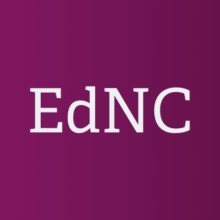The following is a press release from digiLEARN.
With the help of technology, teachers and schools across the country can transform their classrooms into collaborative learning spaces where teachers help students drive their own learning and better prepare for college and careers, according to a report released today by The Digital Learning Institute (digiLEARN).
Teachers and schools should focus on following four key priorities to bring education into the digital age, according to Personalized Learning in a Digital World: Four Key Priorities for Digital and Personalized Learning:
- define personalized learning from the student’s perspective;
- develop the capacities of teachers to implement digital and personalized learning practices in their classrooms;
- create high-quality digital content and innovative state assessment models that provide real-time feedback about students’ learning;
- and improve access to education through the strategic expansion of technology infrastructure and high-speed broadband access.
Personalized Learning in a Digital World is a guide for teachers and schools to learn best practices for incorporating technology and data into personalized learning, a national education trend that involves tailoring instruction, expansion of learning and assessment to each student’s unique needs. The report stems from a May 2017 meeting of educators and policy makers from across the South co-hosted by digiLEARN and the Southern Regional Education Board (SREB). digiLEARN is a North Carolina-based national nonprofit dedicated to accelerating digital learning for all ages, and the Southern Regional Education Board (SREB) is a nonprofit, nonpartisan organization that partners with states to improve public education at all levels.
Personalized learning is an effective way to close the nation’s skills gap and better prepare students for college and careers, and incorporating technology into personalized learning is essential for success, former North Carolina Governor and digiLEARN founder Bev Perdue said.
“Teachers across the country are expected to prepare their students for the future while using an educational model rooted in the past, and our students are graduating ill-prepared for college, career and life success,” Perdue said. “Fortunately, forward-thinking teachers schools are transforming their classrooms by empowering teachers to become leaders who help their students drive their own learning and success.”
Currently, less than 40 percent of graduating high school students score at college and career-ready levels1, and the U.S. faces a skills gap in which 6.9 million people are unemployed despite availability of 6 million jobs2, and fourth- and eighth-graders in the United States have made little to no gains in math and reading since 20153.
To successfully transition to personalized learning, schools and school districts need to educate and empower teachers so they can successfully develop instruction strategies, administer assessments and access data to monitor their students’ growth, said Myra Best, executive director of digiLEARN.
“The schools and districts featured in this report are using technology to elevate learning,” Best said. “But using technology is not a solution on its own.”
To help facilitate teacher learning and empowerment, digiLEARN recently created the Digital Scholars Initiative, which focuses on bringing high-quality professional development opportunities to teachers to allow participants to learn how to lead other educators, use their classrooms as learning labs for other teachers to observe and collaborate with entrepreneurs to help their schools innovate and create new learning models.
The Digital Scholars Initiative, featured in Personalized Learning in a Digital World, is currently in its pilot phase with Rowan-Salisbury Schools in North Carolina, but digiLEARN plans to expand the program this year. digiLEARN created the program after a survey of 1,327 teachers revealed that 85 percent believe digital tools that provide immediate, ongoing information about student understanding will increase learning, but that most teachers feel they lack the skills and knowledge to use digital tools and adopt personalized learning practices in their classrooms.
To download a full copy of Personalized Learning in a Digital Age, visit www.digilearn.org/reports.
About The Digital Learning Institute (digiLEARN)
The Digital Learning Institute (digiLEARN) is a national nonprofit dedicated to accelerating digital learning for all ages, with a goal of increasing personalized learning options for students, expanding opportunities for teachers, and improving the ecosystem for education entrepreneurs. It serves as the front line for teachers, research and the development of new learning models, tools and content needed to help every learner succeed. Former North Carolina Governor Bev Perdue founded digiLEARN in 2014. A longtime champion of using technology to enhance the classroom learning experience for teachers and students of all ages, she serves as the organization’s chair. Former Wyoming Governor Jim Geringer is vice chair. For a full list of board members, visit www.digilearn.org/board. For more on digiLEARN, visit www.digilearn.org.
About The Southern Regional Education Board
The Southern Regional Education Board (SREB) partners with states to improve public education at all levels. SREB is a nonprofit, nonpartisan organization that has 16 member states including Alabama, Arkansas, Delaware, Florida, Georgia, Kentucky, Louisiana, Maryland, Mississippi, North Carolina, Oklahoma, South Carolina, Tennessee, Texas, Virginia and
West Virginia. Created in 1948 by Southern governors and lawmakers, SREB focuses on improving quality of life by advancing public education. It provides independent data and recommendations to help lawmakers make informed legislative decisions. SREB provides educators with professional development to improve student learning and works with stakeholders to share resources and best practices.
Contacts:
Myra Best, Executive Director
myrabest@digilearn.org, 919-414-6846
Emily Swartzlander, Media Contact
emily@ebsstrategies.com, 614-580-6888
Sources:


